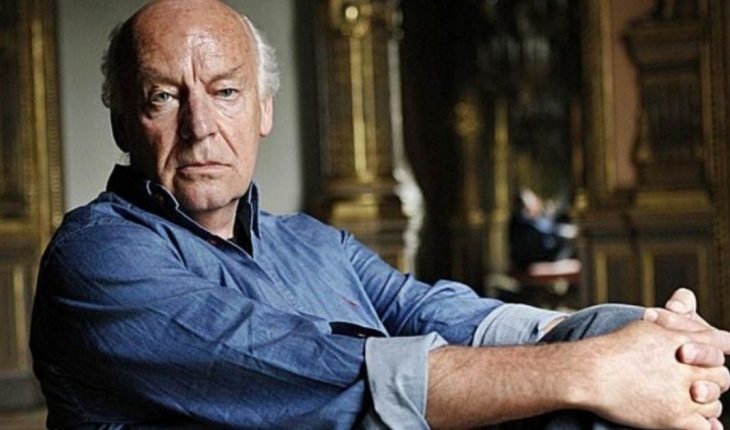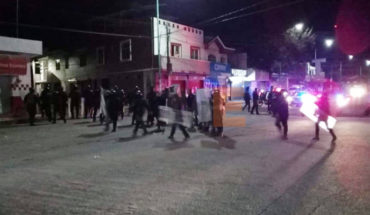80 years after his birth, on September 3, 1940 in Montevideo, the publishing house Siglo XXI, which has published all the books of the author of Memoria del Fuego, will launch on social networks the hashtag #Galeano to invite him to share his texts and readings. Eduardo Germán María Hughes Galeano was born in Montevideo, Uruguay. In his extensive literary career he used his first name and maternal surname to sign his works. In his ironic Autobiography (three brief paragraphs) he wrote: “I was born on September 3, 1940, while Hitler devoured half of Europe and the world expected nothing good.” In 1960 he began his career as a journalist in the weekly Marcha (1939-1974), by Carlos Quijano, who had as secretary of management Juan Carlos Onetti and who had collaborators such as Mario Vargas Llosa, Mario Benedetti and Roberto Fernández Retamar. For two years he ran the newspaper Epoch and worked as editor-in-chief at University Press.At the age of 31 he published “The Open Veins of Latin America” (1971), a text that addressed the sentimental and political education of several generations, a classic of the Latin American left. And that represented the most important work in the writer’s career.
“Open veins were trying to be a book of political economy, but I didn’t have enough training or preparation,” the writer said, acknowledging that I wouldn’t be able to read it again because it would pass out: “For me that traditional left prose is extremely heavy and my mind doesn’t tolerate it.” said at the time. On June 27, 1973, Juan María Bordaberry’s military coup took power in Uruguay, the writer was imprisoned and then forced out of the country. And the writer went into exile in Argentina.Carlos E. Díaz, editor of the nineteenth century, a stamp that holds all the copyright to Galeano’s work, says that a year before Galeano died “in the summer of 2014 we had closed every last detail of “The Story Hunter”. In this poustum book published in 2016, the narrator confesses: “In 1970, I presented The Open Veins of Latin America to the House of the Americas contest in Cuba. And I lost. According to the jury, that book wasn’t serious. In ’70s, the left still identified seriousness with boredom.” He adds: “The open veins of Latin America were published shortly after the Contest of Cuba”, and was fortunate to be highly praised by military dictatorships, who forbade it,” Galeano writes in The History Hunter, adding: “The truth is that that’s where prestige came from, because until then he hadn’t sold copies, nor did the family buy it.”
In 1976, after the last coup d’earlier in Argentina, the writer’s name was added to the “blacklist” of artists and intellectuals banned by the “National Reorganization Process”. The writer had to go into exile again, this time the chosen destination was Spain, where he began to write. Already located in the European country, stories such as “the most powerful literary accusation of colonialism in the Americas” and its famous Memory of Fire trilogy, composed of the books: The Births (1982), Faces and Masks (1984) and The Wind Century (1986), were told again.
In addition to Latin American history, football becomes a central theme and a non-transferable passion Galeano used to say about sport which is: “music in the body, feast of the eyes, and also denounces the power structures of one of the most lucrative businesses in the world”. In 1968 the writer had collected a selection of football short stories entitled His Majesty Football with texts by Albert Camus, Mario Benedetti and Horacio Quiroga, among others. But it was only in 1995 that he published : “Football in Sun and Shadow”, where the writer tries to unite two universes: “I wrote the book for the conversion of pagans. I wanted to help reading fans lose their fear of football, and that football fans would lose their fear of books,” he was excited.
In January 2006, he joined international figures such as Gabriel García Márquez, Mario Benedetti, Ernesto Sabato, in demanding sovereignty for Puerto Rico. In addition to signing for the country’s proclamation of independence.
In November 2008, he proclaimed himself about Barack Obama’s victory and said, “The White House will be Obama’s house soon, but that White House was built by “black slaves.” And I’d like to and hope he never forgets.”
In April 2009, former Venezuelan President Hugo Chavez delivered a copy of Latin America’s Open Veins to former US President Barack Obama during the fifth Summit of the Americas, held in Port of Spain, Trinidad and Tobago. The fact caused it to become an Internet bestseller in a few hours.
The writingOr Mempo Giardinelli recalled: “When in August 2012 we organized the 17th International Forum for the Promotion of Book and Reading, in Resistance, Galeano had somewhat compromised health, but told me in an email: ‘I did my best to avoid efforts, for example queues to sign books, press interviews, cell phone photos and tutti quanti. I’ll go to Resistance, whatever it takes, to the cry of: ‘We will survive, even if it cost us our lives!’ After three days with us and his wife Helena and his friend Eric Nepomuceno, when he returned to Montevideo he wrote to me, ‘Thank you, man, these shared walks help me deal with the days to come with good face,'” his friend and colleague Giardinelli recalled. Galeano had had lung cancer since 2007, which had forced him to reduce his public appearances, although he continued to participate in different events. After being admitted to CASMU for a week as a result of his illness, he died on April 13, 2015, in his native Montevideo.





